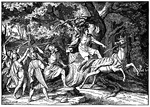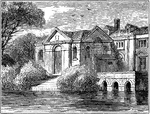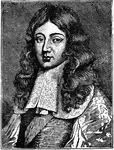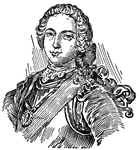Clipart tagged: ‘revolt’

Absalom is Killed by Joab While Hanging in a Tree
"Then said Joab, I may not tarry thus with thee. And he took three darts in his hand, and thrust them…

Gunpowder Conspirators' House, Lambeth
The Gunpowder Plot of 1605, or the Powder Treason, as it was known at the time, was a failed assassination…

James, Duke of Monmouth
James Crofts, later James Scott, 1st Duke of Monmouth and 1st Duke of Buccleuch (April 9, 1649 –…

